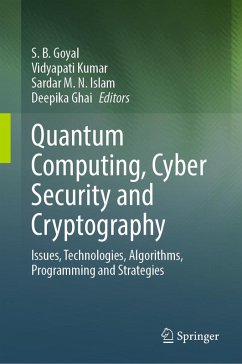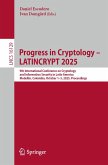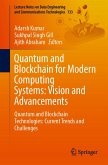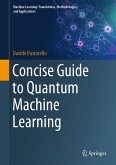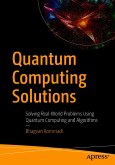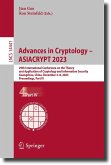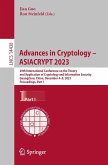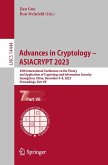The chapters cover the foundational concepts of quantum mechanics and key quantum algorithms relevant to cryptography and cybersecurity. Detailed discussions on quantum cryptanalysis, post-quantum cryptography, quantum key distribution, and quantum random number generation equip readers with technical knowledge of quantum-safe cryptosystems. Practical topics such as quantum programming, software tools, and implementation of quantum-resistant solutions in different sectors like finance, healthcare, and the Internet of Things provide actionable insights for organizations. The book concludes with an analysis of collaborative strategies, policies and future research directions to foster innovation in quantum-safe cybersecurity. Overall, this book serves as an essential reference for security professionals, researchers, students, and technology leaders interested in preparing systems and data for the quantum computing era.
Dieser Download kann aus rechtlichen Gründen nur mit Rechnungsadresse in A, B, BG, CY, CZ, D, DK, EW, E, FIN, F, GR, HR, H, IRL, I, LT, L, LR, M, NL, PL, P, R, S, SLO, SK ausgeliefert werden.

